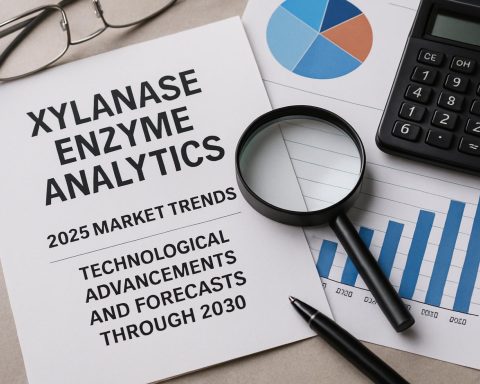- Folksam, Sweden’s largest insurer, divested its $160 million stake in Tesla, highlighting a key rift between innovative companies and workers’ rights advocates.
- The divestment emphasizes Folksam’s commitment to equitable labor practices and collective bargaining, reflecting broader European values of corporate governance and social responsibility.
- Folksam’s decision sends a clear message about the importance of aligning investment strategies with ethical standards and employee well-being.
- Despite attempts at dialogue, Tesla’s resistance to adopting collective bargaining agreements in Sweden led to Folksam’s exit, underscoring the company’s emphasis on competitive benefits.
- The Nordics’ strong ESG principles guide their investment decisions, providing little leeway for non-compliant firms despite their industrial success.
- Folksam’s move could inspire a broader trend of ethical investment scrutiny, challenging Tesla and others to prioritize social responsibility.
- The situation signals a shift from passive to active investing, where stakeholder influence hinges on capital aligned with moral values.
A quiet storm has broken loose over the icy waters of Northern Europe, and at the eye lies a powerful clash between one of the world’s most innovative companies and steadfast advocates for workers’ rights. Folksam, Sweden’s largest insurer, recently divested its $160 million stake in Tesla, signaling a seismic shift in the landscape of investment strategy and corporate governance.
Nestled within the Nordic ethos is a deep-seated commitment to equitable labor practices. Here, the demands for collective bargaining aren’t merely suggestions—they’re pillars of a fair marketplace. Folksam’s decision to part ways with Tesla underscores a burgeoning tension, one that reflects a broader debate seething beneath the surface: the confluence of profit, ethics, and employee well-being.
Folksam oversees a staggering portfolio, managing assets that soar beyond $80 billion. Its voice carries significant weight, and its divestment from Tesla is akin to a thunderous clap across Europe’s sustainability-focused investment community. The message resounds clearly—when it comes to employee rights, there is little room for compromise.
This orchestrated exit wasn’t Folksam’s initial response. The insurer first sought to engage Tesla in dialogue, urging for the adoption of collective bargaining agreements for Swedish mechanics—efforts met with steadfast resistance from the Silicon Valley titan. Tesla, at the behest of its outspoken leader Elon Musk, rebuffed these overtures, maintaining its suite of employee benefits as competitive enough.
Marcus Blomberg, a key figure in steering Folksam’s asset management and sustainability strategies, emphasized their pragmatic approach before reaching this impasse. Yet, with palpable frustration, the insurer concluded their attempts had fallen flat, prompting their decisive withdrawal.
The stakes here are substantial. The Nordics, renowned for their rigorous ESG (Environmental, Social, and Governance) frameworks, are unlikely to soften their stance for the sake of industrial innovation alone. Investors in these territories are guided by a moral compass that mandates alignment with societal values. Folksam’s move sets a precedent—clarifying their willingness to divest from companies that stray from these ideals.
Tesla faces a critical moment in Europe where the intersection of ethical investment and corporate policy could dictate its future. If Folksam’s bold step incites a wider exodus of investors determined to align their portfolios with their principles, Tesla may find itself battling not only regulatory challenges but also a formidable wave of ethical investment scrutiny.
This tale is a harbinger, a reminder that the era of passive investing is giving way to one of activism, where stakeholders wield their power not just from boardrooms, but with their capital. As the reverberations from Folksam’s decision ripple across the continent, businesses can glean a necessary lesson: the path to enduring success in today’s market leads through the halls of social responsibility and meaningful dialogue with workers.
Tesla’s Nordic Challenge: Investor Ethics vs. Corporate Governance
The Folksam-Tesla Divestment and Its Wider Implications
Folksam, Sweden’s largest insurer, has recently divested its substantial $160 million stake in Tesla, highlighting a significant shift in investment strategies where ethics play a decisive role. This decision underscores a growing movement where profits and ethical considerations are not mutually exclusive.
Labor Rights in the Nordic Context
Folksam’s divestment stems from Tesla’s reluctance to engage in collective bargaining for its Swedish employees, reflecting a broader Nordic commitment to equitable labor practices. In these regions, collective bargaining isn’t just a recommendation—it’s a staple of fair market practice. Such actions by Folksam signify a demand for corporate governance that does not compromise on worker rights, an essential criterion in ESG (Environmental, Social, and Governance) investment frameworks.
Why Folksam’s Move Matters
– Influence in Investment Circles: Folksam oversees over $80 billion in assets, making its decisions noteworthy within sustainability-focused investment communities across Europe.
– Setting a Precedent: This move might inspire other ESG-conscious investors to consider similar actions, fostering an investment landscape where ethical practices are prioritized alongside financial returns.
– Corporate Responsibility: The incident emphasizes the correlation between corporate policies and investor decisions. Companies like Tesla might need to revisit their governance policies in light of labor relations and ethical investors’ expectations.
Industry Trends and Predictions
– Increased Activism Among Investors: The era of passive investment is transitioning to one where active investor participation is crucial. This includes enforcing accountability for corporate practices impactful to society and the environment.
– Future of ESG Investments: As illustrated by Folksam’s decision, ESG considerations will become increasingly significant in investor decision-making across Europe and beyond. This may result in stricter adherence to social and governance standards.
How Companies Can Adapt to Ethical Investing
– Engagement in Dialogue: Companies need to actively engage with stakeholders and employees to resolve conflicts related to labor practices. Open dialogues help foster trust and mutual understanding.
– Aligning Policies with ESG Standards: Businesses should evaluate and ensure their operational and governance policies align with ESG standards to attract and retain ethically-driven investors.
– Adapting to Diverse Markets: Recognizing regional norms and practices, such as collective bargaining in Nordic countries, and adjusting policies accordingly can prevent potential conflicts.
Quick Tips for Investors and Companies
– For Investors: Consider assessing the ethical positioning of companies in your portfolio. Align your investments with your values to support sustainable business practices.
– For Companies: Transparency in labor practices and comprehensive sustainability reporting can enhance your appeal to ESG-focused investors.
Conclusion: A Call to Action
As Folksam’s decision echoes across Europe, it serves as a reminder that investment strategies are increasingly guided by ethical considerations. For companies like Tesla, adapting to this new era involves embracing ESG principles and engaging meaningfully with workforce stakeholders.
For more insights into sustainable investment practices, visit Tesla and Folksam.














